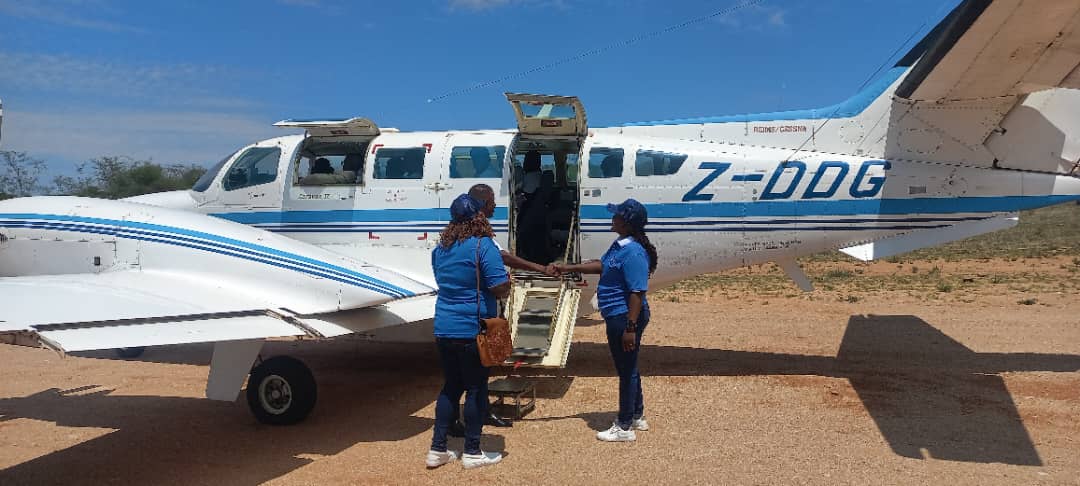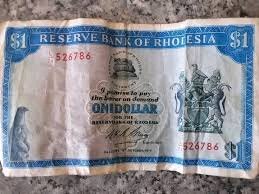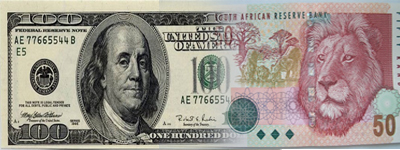THE weakening of the South African rand against the United States dollar has sparked an outcry in Bulawayo and parts of the southern region with some public institutions now refusing payment in rand.
A snap survey yesterday revealed that government institutions such as schools and the Vehicle Inspection Department (VID) were refusing rand payment in preference of the greenback.
While banks and foreign currency dealers known as osiphatheleni are cashing in on people who want to exchange currencies, ordinary people are feeling the heat.
The weakening of the rand in the past few months, which now fluctuates at the rate of between 11 rand per dollar and 12 rand per $1 has affected people’s spending power because of cross rates.
"I went to the VID to book for a driving test and got shocked when I produced 200 rand and was told to bring proper money," said Nothando Sibanda from Nkulumane.
"I told them that I was willing to top up on the 200 rand but the cashier said they did not accept the rand. I think it is not fair because we all know that the rand is a currency that is in use in the country."
During a meeting at Msithi Primary School in Filabusi on Wednesday, parents also complained that schools were refusing payment in rand.
They told an official from the Ministry of Primary and Secondary Education Jesta Mandazi that they had no access to dollars, which local schools were demanding.
"Most people here get money from relatives in South Africa and this means the bulk of the money circulating in the area is in rand," said a parent during the meeting.
"It does not make sense for our children to be turned away from school because we do not have the required currency."
Mandazi acknowledged that schools were not accepting payment in rand because of the issue of cross rates and said the ministry was looking into the issue.
Meanwhile, most schools in Bulawayo now require fees to be paid in dollars to avoid cross rates and only accept the rand when one is paying levies.
Supermarkets and other shops have already adjusted the cross rate. Tenants have not been spared from the predicament as most landlords are now demanding rentals in dollars.
While the Bulawayo City Council and Zesa are accepting payment in rand residents are complaining about the ever changing exchange rates.
"I used 200 rand to buy an electricity recharge voucher at Zesa and expected to get units worth $20 but I got units worth $17," said a consumer identified as Sibanda.
"The situation is the same at city council. They accept payment in rand but we feel cheated when they convert it to dollars."
Money transfer agencies have also adjusted their rates.
"My husband sends money from South Africa using mukuru.com or Western Union and it turns out to be far less than what I expect because of the unstable cross rate. I cannot ask for more because his salary has not changed," said Priscilla Ngwenya from Mpopoma.
"I could opt to receive the money in rand but now most shops are offering an unfair rate even on days when the rand is strong."
Foreign currency dealers said the weakening of the rand had created business for them.
"We are not selling but buying the rand because we know that there will come a time when it will be scarce. We are also buying from those who are selling it out of fear it might weaken again," said a forex dealer, Mavis Msipa.
However, government hospitals and clinics are still accepting the rand at the rate of 10 rand per dollar.
- chronicle
 Zimbabwe launches new airline
Zimbabwe launches new airline  Hichilema meets Chivayo
Hichilema meets Chivayo  Millions celebrate Diwali festival in India
Millions celebrate Diwali festival in India  SA bitcoin firm mulls Zimbabwe listing
SA bitcoin firm mulls Zimbabwe listing  Gold edges up as traders await guidance
Gold edges up as traders await guidance  Airlink applies for Lanseria to Harare, Bulawayo route
Airlink applies for Lanseria to Harare, Bulawayo route  Young Investment Professional (YIP) Graduate Programme 2019
Young Investment Professional (YIP) Graduate Programme 2019 











 Young Investment Professional (YIP) Graduate Programme 2019
Young Investment Professional (YIP) Graduate Programme 2019
Editor's Pick